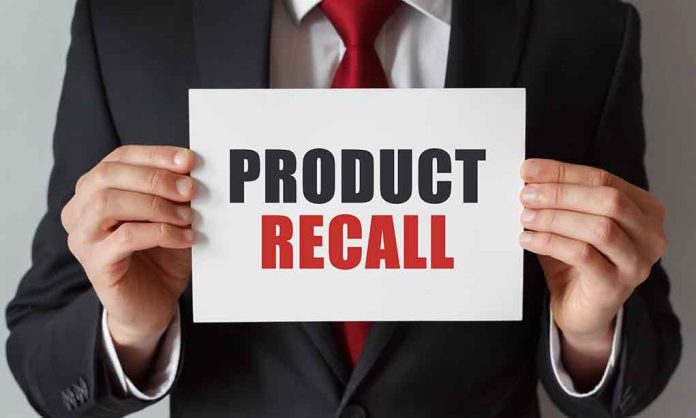
A dangerous Salmonella outbreak linked to Turkish-imported pistachio cream has hospitalized one person and sickened three others, prompting urgent warnings from federal health officials as the contaminated product continues to be distributed nationwide.
Key Takeaways
- Emek-brand pistachio cream with a use-by date of October 19, 2026, has been linked to Salmonella infections in Minnesota and New Jersey
- The contaminated product was imported from Turkey and distributed to restaurants, wholesale distributors, and food service locations nationwide in 11-pound tubs
- Three cases are linked to a single Minnesota restaurant, suggesting commercial food establishments may be primary exposure points
- Federal agencies warn businesses to immediately stop selling or serving the affected product, and consumers should discard it if found
- Young children, elderly adults, and those with weakened immune systems face highest risk of severe illness from Salmonella infection
Foreign Import Sparks Health Crisis
Federal health officials have identified Emek-brand pistachio cream as the source of a multi-state Salmonella outbreak that has already affected four individuals across Minnesota and New Jersey. The contaminated nut spread, imported from Turkey and packaged in 11-pound white tubs, has been distributed to restaurants, wholesale distributors, and food service locations throughout the United States. The CDC’s investigation revealed that three of the four cases were linked to consumption at a single Minnesota restaurant, raising particular concerns about commercial food establishments using this product.
“The outbreak was linked to Emek-brand Pistachio Cream and was sold and imported to wholesale distributors, restaurants, and food service locations.” according to the FDA and CDC.
Three people in Minnesota and one in New Jersey fell ill between March 10 and May 19. https://t.co/5sc02e84ka
— News19 WLTX (@WLTX) June 16, 2025
Health Agencies Issue Urgent Warning
The FDA was first alerted to the potential outbreak by the Minnesota Department of Health after confirming positive Salmonella samples in the pistachio cream. This triggered an immediate joint investigation with the CDC. Both agencies have taken swift action to contain the spread, with officials emphasizing that the pistachio cream with the specified use-by date should not be used under any circumstances. The Trump administration’s health officials are conducting a thorough investigation to trace the product’s distribution channels and identify additional cases.
“The product should not be sold, distributed, or served,” stated CDC.
The outbreak highlights ongoing concerns about food safety standards for imported products entering American markets. Businesses in possession of the contaminated cream are instructed to immediately remove it from inventory and thoroughly sanitize any surfaces or equipment that may have contacted the product. Consumers who discover the product in their possession should discard it immediately and clean all utensils or surfaces that may have been exposed to prevent cross-contamination.
Understanding Salmonella Risks
Salmonella infection presents serious health risks, particularly for vulnerable populations. Symptoms typically develop between 6 hours to 6 days after exposure and include diarrhea, fever, and abdominal cramps. While most healthy individuals recover without specific treatment within a week, certain groups face higher risks of severe illness, including children under 5, adults over 65, and those with compromised immune systems. These higher-risk individuals may require hospitalization if symptoms worsen.
“Salmonella is a group of bacteria that can cause gastrointestinal illness and fever called Salmonellosis,” stated CDC.
Health officials advise seeking immediate medical attention if severe symptoms develop, including high fever (over 102°F), prolonged diarrhea, bloody stools, persistent vomiting, or signs of dehydration. The CDC recommends that anyone who has consumed the affected pistachio cream and experiences these symptoms should inform their healthcare provider about the potential exposure to ensure proper diagnosis and treatment. This outbreak serves as a reminder of the importance of rigorous inspection standards for imported food products entering the United States.




